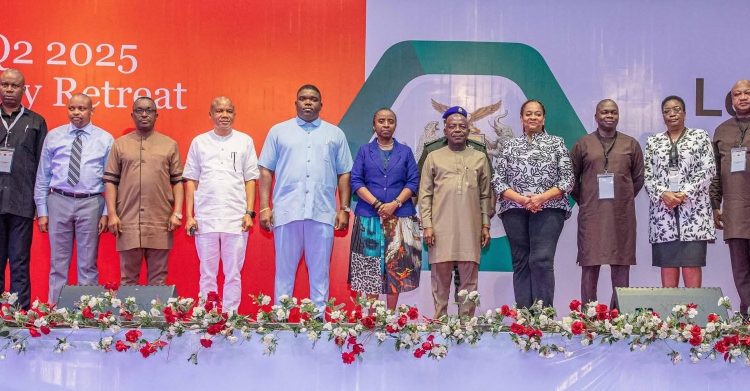Sustaining Good Governance Through Strategic Planning and Execution: Gov. Otti’s Example
By Ogbonnaya Ikokwu
The remarkable strides so far made by Gov. Alex Otti’s administration in Abia State have continued to impress political observers and citizens alike. Many have lauded the governor as a transformative leader bringing innovation, transparency, and renewed hope into public governance.
In his 25 months in office as Abia’s Chief Executive, Gov. Otti has demonstrated that all hope is not lost in the struggle to rescue Nigeria from the grip of poor leadership, a governance culture that often fails to deliver the dividend of democracy to its citizens.
One of the most tangible impacts of his administration has been the clearance of salary arrears owed to civil servants and pensioners, restoring dignity to many who had long lost hope. His policies have also improved the business environment for small and medium-scale entrepreneurs by implementing the Treasury Single Account, which has significantly reduced the burden of multiple taxation and revenue leakages.
In rural communities, farmers have heaved a huge sigh of relief, following the ongoing reconstruction of previously abandoned, impassable roads. Improved access has enhanced the movement of agricultural produce, reducing post-harvest losses and increasing earnings for farmers.
Transporters are equally benefitting from the extensive rehabilitation of roads across the state. With smoother journeys, they now cover more trips per day and enjoy longer vehicle lifespan due to less wear and tear on their vehicles. These improvements translate to reduced operational costs and increased income.
Other public infrastructure, including schools, hospitals, courts, health centers, and the environment are receiving much-needed attention under Gov. Otti’s leadership. This comprehensive approach underscores a clear vision: governance that improves both infrastructure and quality of life.
Importantly, these achievements are not accidental. They stem from a carefully designed strategy and deliberate execution by the governor and his team, who are committed to correcting the systemic failures of the past.
To maintain this momentum, the administration has institutionalized quarterly strategy retreats to assess performance, measure progress, and plan for the future. During the just-concluded two-day Q2 2025 Strategy Retreat held at the International Conference Centre, Umuahia, between July 2 and July 3, Gov. Otti addressed his appointees on the theme:
“Sustaining the Momentum: Leadership and Execution.”
He emphasized the need for renewed focus and higher performance in the second half of his first term, reflecting on the lessons learned in governance, stakeholder engagement, and managing expectations.
“These retreats allow us to periodically evaluate our journey, identify where we’ve fallen short, and determine how to accelerate progress within available resources,” he said.
He also said that even critics from opposing political camps acknowledge the government’s performance, admitting that the administration has elevated the standards of governance and remained committed to the “New Abia” dream.
“We are operating in a space where public expectations are dynamic and demand empathy, understanding, and accountability,” he said.
Gov. Otti also reiterated his administration’s zero tolerance for mediocrity. He encouraged participants to maximize the retreat by engaging in group discussions and one-on-one mentorship sessions, particularly with members of the Abia Global Economic Advisory Council, led by co-chair Prof. Arunma Oteh, who was present during the retreat.
Closing the retreat on July 3, the governor stressed the importance of capacity building across all Ministries, Departments, and Agencies. He directed the Chief Strategy Officer and the Chairman of the Civil Service Commission to design a training template for 1,000 youths (ages 16–20) focused on leadership development, character building, and self-discovery beyond the traditional academic setting.
This directive aligns seamlessly with the administration’s vision of developing human capital alongside physical infrastructure. The training programme will cover key competencies, such as ICT, communication, stakeholder management, and value creation, all critical for shaping tomorrow’s leaders.
Gov. Otti also revealed plans to establish a state academy that will facilitate regular training for public servants and extend mentorship programmes to secondary schools and tertiary institutions.
The youth-focused training is scheduled to hold between the first week of August and second week of September and represents one of the most impactful empowerment initiatives for the next generation. The governor’s vision is that, following the pilot phase, the mentorship programme would become institutionalized and potentially integrated into school curricula in the state.
Gov. Otti’s commitment to result-driven governance, youth empowerment, and sustainable development continues to elevate the bar in Nigeria’s public administration landscape.
With the massive infrastructure development so far recorded by Gov. Otti’s administration through strategic planning and leadership training, the “New Abia” is gradually becoming a model for visionary and quality governance, going forward.
#GovernorOttiIsBuildingTheNewAbia
#ToGodBeTheGlory
Ogbonnaya Ikokwu is a journalist and public affairs analyst writing from Umuahia.

